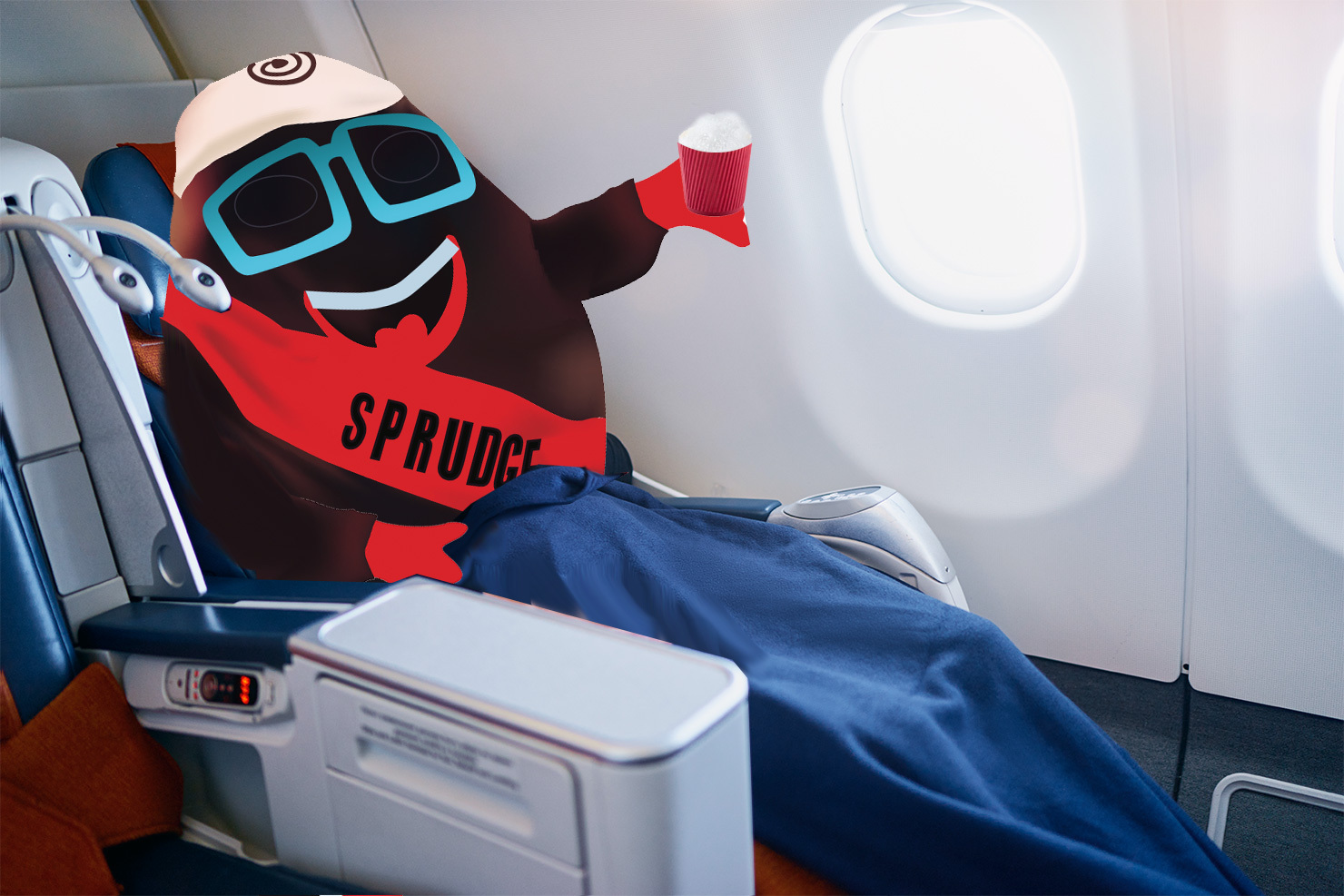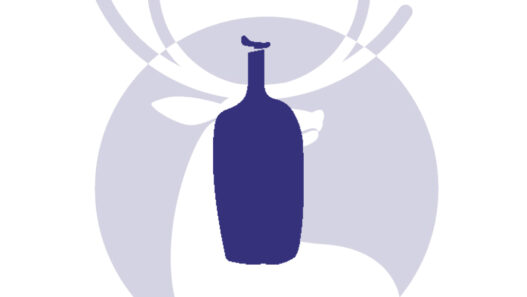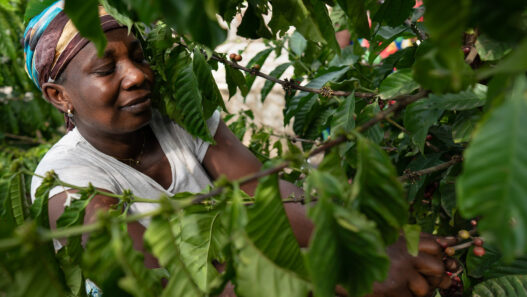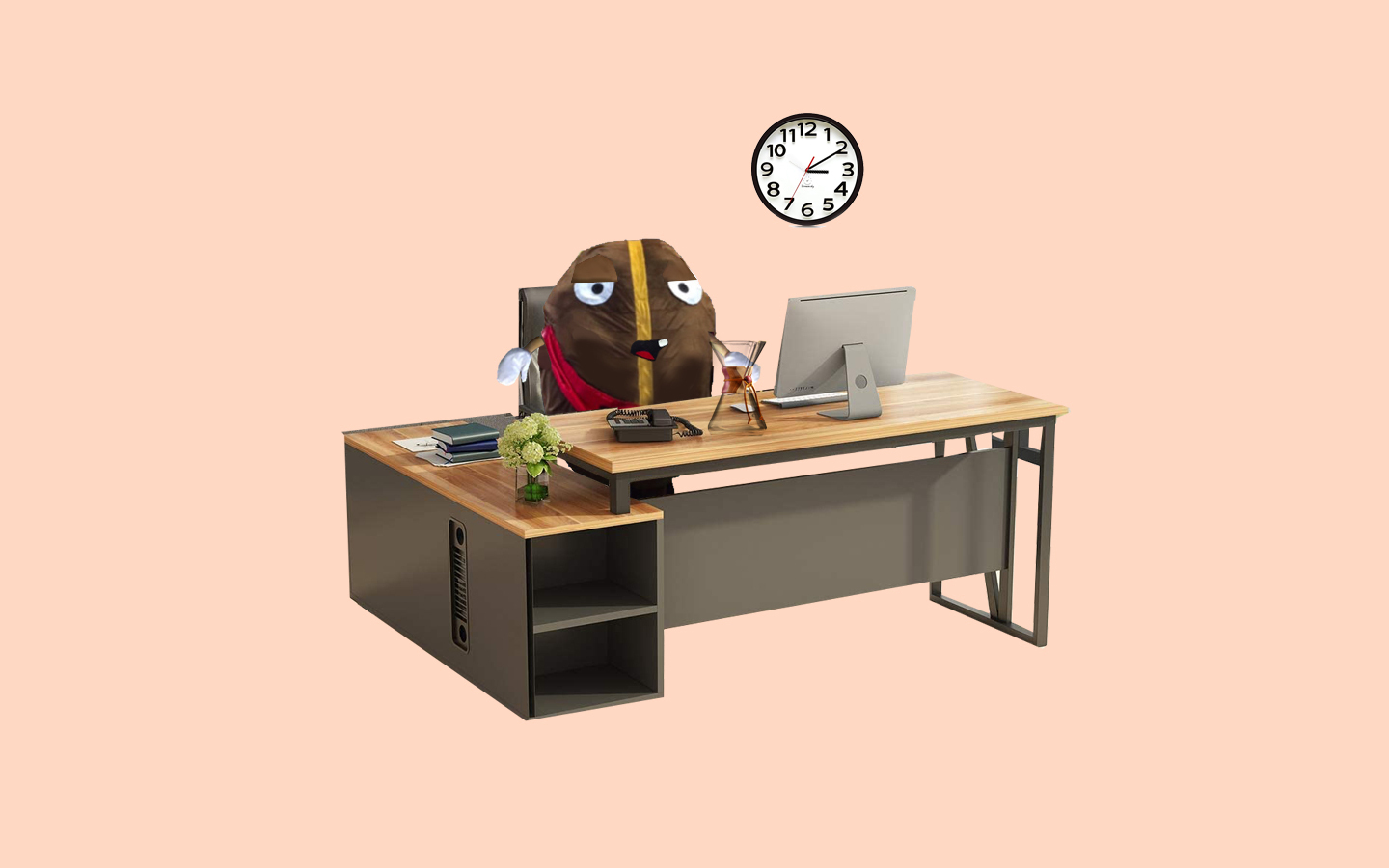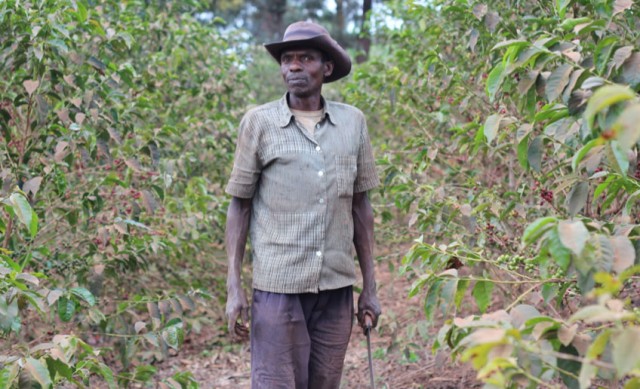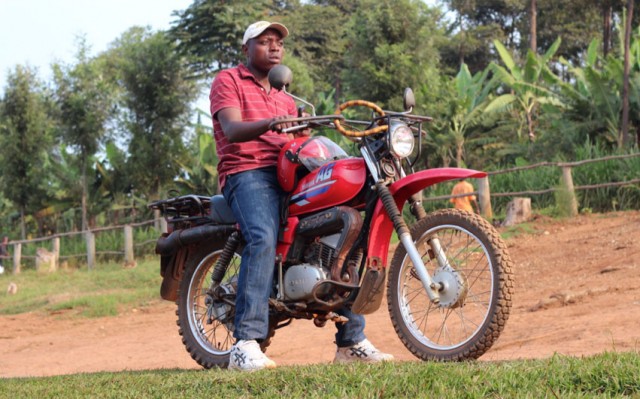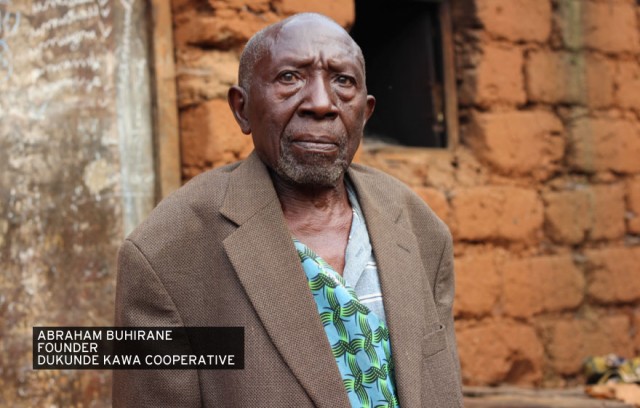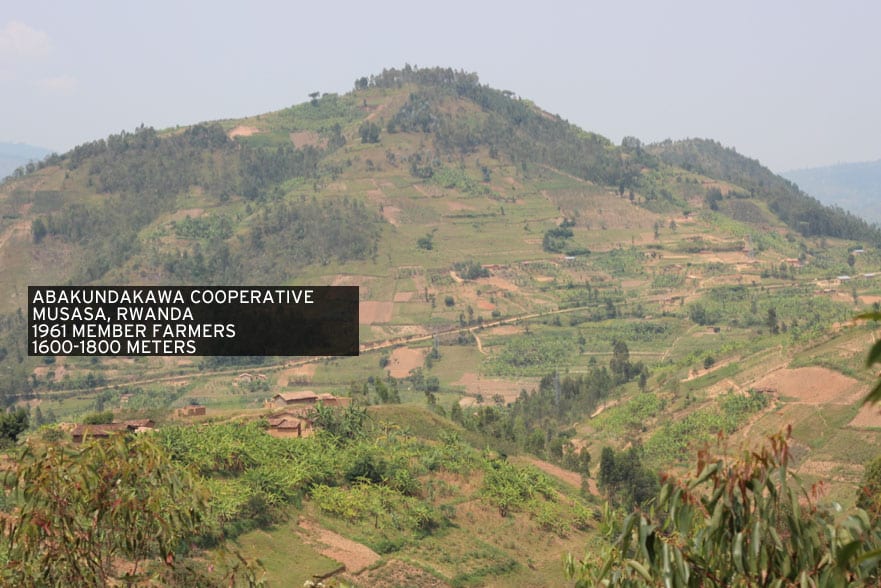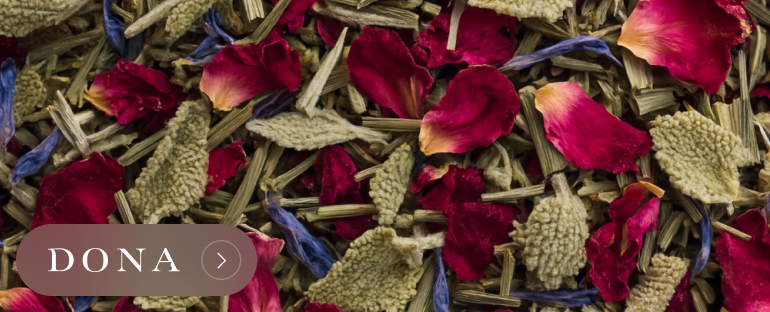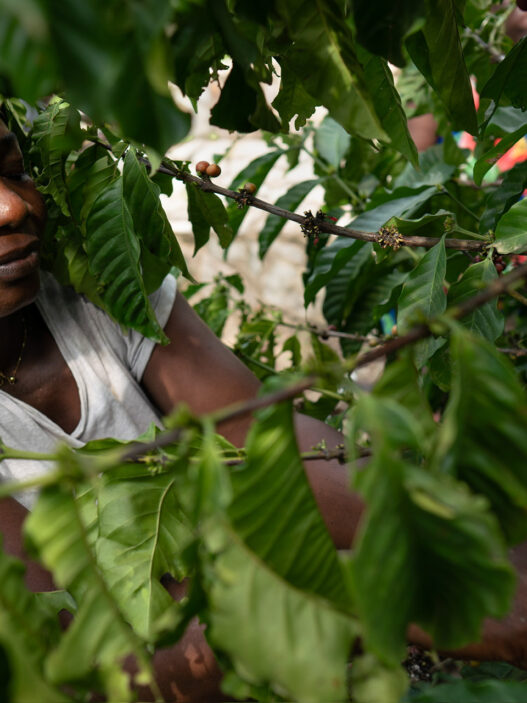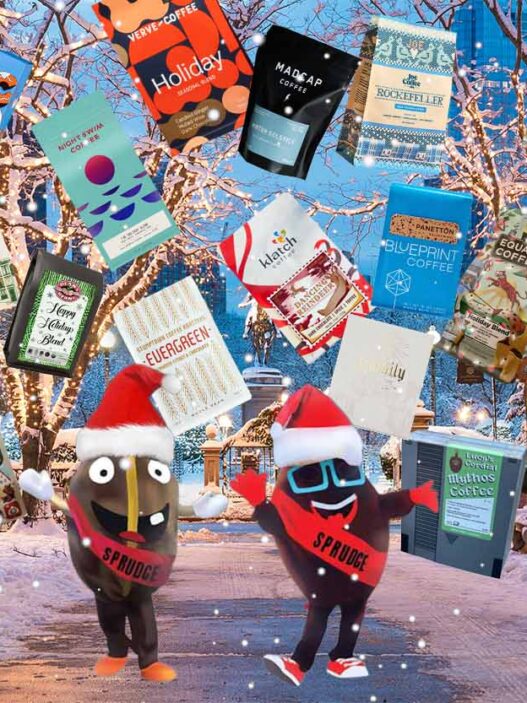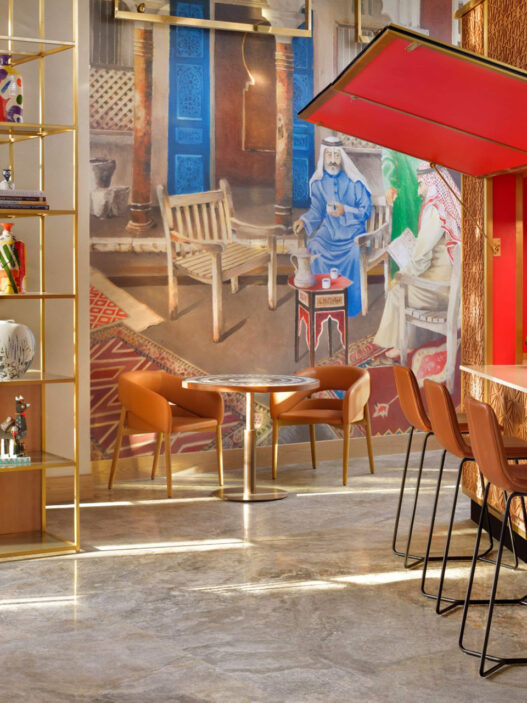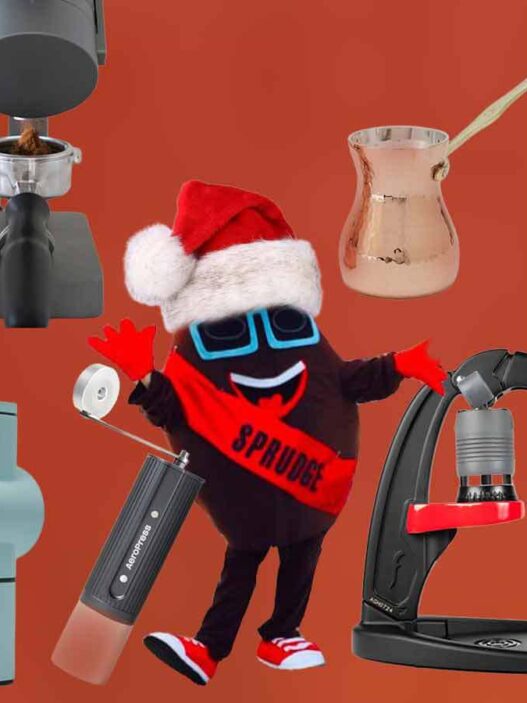First, to settle a discrepancy we’ve encountered back in North America: “Dukunde Kawa” is actually two words, and is printed as such on signage throughout the coooperative’s Musasa washing station. We’ve occasionally seen it labeled “Dukendekawa” on packaging in the West, and that’s how its printed on the entrance sign, but it was only done that way to conserve space on the sign. “Musasa” means “place to make a bed”, and it’s a hospitality echoed in the greeting meeting we share with members of the cooperative board, who repeatedly invite us to stay the night in their village and hang out with them as much as possible while we’re there.
The Dukunde Kawa cooperative started in 2000, just one of many legacies of Dr. Tim Schilling’s work with the USAID SPREAD project, funded by the United States government in concert with Texas A&M University, where Dr. Schilling works at the Norman Borlaug Institute for International Agriculture. SPREAD’s legacy can be felt far and wide throughout Rwanda; along with investment and education from Fair Trade USA, it’s one of the chief reasons for the success and development of the specialty coffee industry in Rwanda. Dukunde Kawa started in 2003 with 300 members; there are now 1,816 member farmers in the cooperative, contributing coffee to a total of 4 washing stations, the largest of which being the Musasa station.
Dukunde Kawa was Fair Trade Certified in 2004, implementing a program of direct training for the cooperative’s member farmers, giving them the ability to better understand their industry and own their organization. Dukunde Kawa’s president is a sharply dressed middle-aged man named Minaeu Anasthase; his vice-president is a gray haired firebrand called Polen Mudahinyuka, and their cooperative secretary is a young lady named Odette Murukatete. Mrs. Murukatete is also the Chairwoman of the Board of Dukunde Kawa’s women’s organization (around 80% of Dukunde Kawa’s contributing farmers are women). Isaac Nsanzamahoro is Dukunde Kawa’s manager, while Mr. Laurent Muhyabuhoro heads the cooperative’s control committee. As per Rwandan law, these positions are elected in votes held once every three years at the cooperative’s general assembly meetings, which we’re told are particularly well-attended here.
Dukunde Kawa’s president, Mr. Anasthase, tells us that improved quality and investment via their relationship with FTUSA has been enormously beneficial on the ground in Musasa. All the children for families in this cooperative attend school, or are provided with financial credits to attend school, and cooperative members enjoy access to health care and insurance. This cooperative and Christine Condo, who is our handler, translator, and knowledge-font on this trip, were awarded the prestigious SCAA Sustainability Award just a few months ago, at the SCAA Expo in Portland, for Dukunde Kawa’s commitment to shade-grown coffee and agriculturally responsible replanting efforts. Dukunde Kawa is currently undergoing a complete transition to organic agriculture, and should be fully certified organic by 2014.
They weren’t processing at the Musasa station when we visited; empty washing stations sort of look like a water park in January, and shoots and slides but no water, and no fun. What jumped out right away was the quality of Musasa’s storage room, which Counter Culture Coffee buyer Tim Hill identified as having the ideal storeroom floor: wood slats that sit around 2 feet off the concrete ground, so as to keep moisture and condensation at bay. Musasa uses an 18 hour dry fermentation, and then the coffee is washed, de-pulped, and passed through a series of canals that allow lighter, less delicious coffee cherries to pass through, while retaining the heavier, sweeter cherries. The station itself sits on top of a large hill, overlooking an overlapping network of valleys and other, equally impressive hills, making for one hell of a washing station vantage point.
Coffees from Dukunde Kawa have been offered recently by roasters such as Dogwood Coffee, Thanksgiving Coffee, Greenway Coffee, and Union Hand Roasted, among others.
Further Reading:
Fair Trade USA listing for Dukunde Kawa
Musasa washing station on Coffee Shrub
James Hoffmann interviews Dr. Tim Schilling



